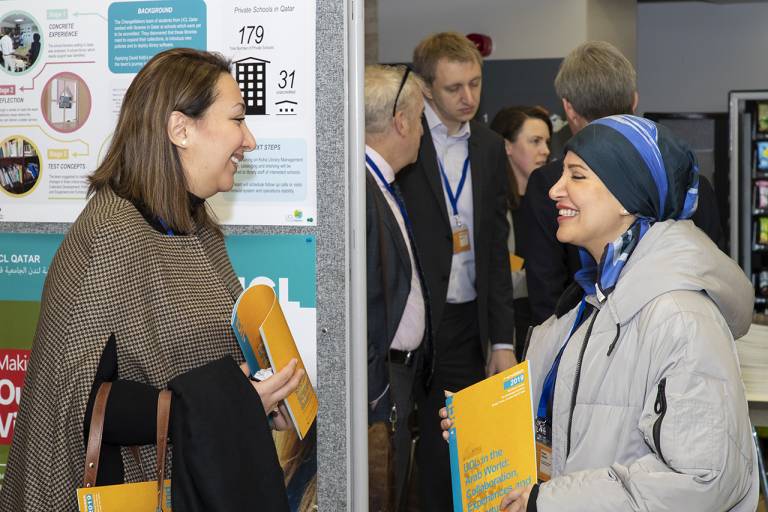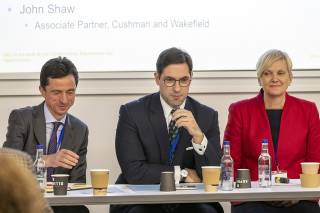UCL in the Arab World: Collaboration, Experiences and Opportunities
15 November 2019
Expert staff identify opportunities and share experiences

On 7 November 2019, the event UCL in the Arab World: Collaboration, Experience and Opportunities was held at UCL’s Bentham House, for a day of presentations and reflections on what it means to work in the MENA region and to explore the possibilities of future collaborations.
The event, sponsored by UCL’s Africa and Middle East regional network and UCL Qatar, brought together UCL academics, staff and external experts to discuss three themes: “Research, Innovation and Impact”, “Collaboration, Partnership and Delivery” and “Trends and Opportunities”. This provoked a lively debate about the challenges and the possibilities for collaboration in the region.
Prof. Nora Colton, Pro-Vice-Provost (Postgraduate Education) chairing the first session: Emerging Trends, Themes and Opportunities, spoke about the largely un-met basic education needs in the region. Michael Stephens, Specialist on Middle East Affairs and Head of RUSI Qatar, spoke about some of the challenges of working in the region. For instance, following the Arab Spring there has been some pushback from governments, including restrictions on social media and books that address certain issues.
This introduction generated a discussion about the quality of the education, its relevance to the region’s employment needs, the extent to which critical thinking is promoted in local education, the role of universities in addressing professional development and lifelong learning, and whether and how UK universities should engage in the region.
Challenges, opportunities and a long-term commitment

Michael Stephens said: “You have to be clear about your red lines, what you will and will not accept - and what you want to achieve with your client. The objectives have to be agreed on both sides to avoid disappointment”.
The panel agreed that transnational education involved a long-term commitment, potentially over decades and that it was essential that there was an alignment of mission, vision and values together with an in-depth understanding of the social, political and ethical aspects involved.
To read more about the practical considerations of working in the region, research projects and case studies of existing and potential new projects read our blog here.
 Close
Close

